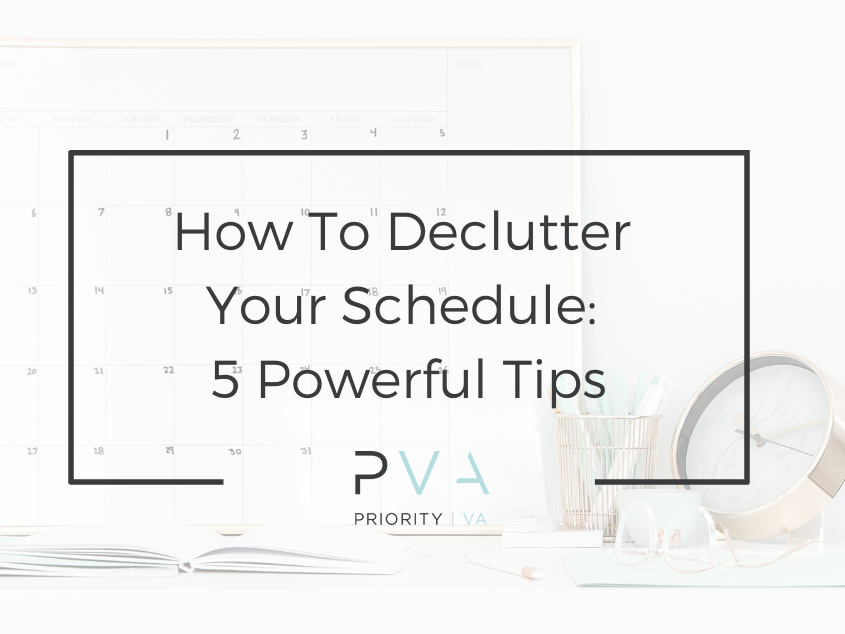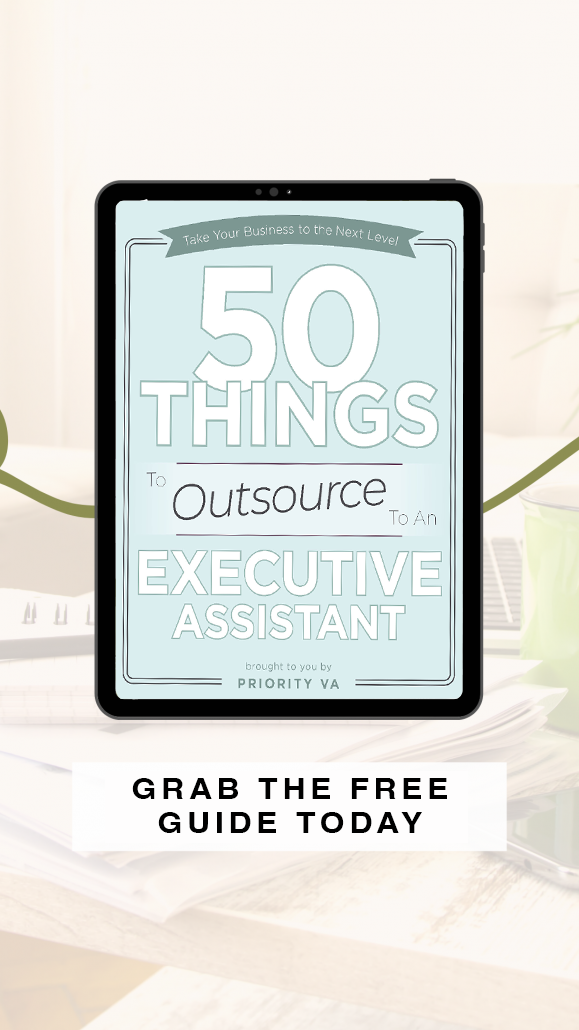You can never get more time, but you can find ways to make better use of the time you have.
Decluttering your schedule takes intentionality and a willingness to work differently.
It also requires parting ways with the belief that busyness equals productivity, and stress with success.
The cult of busy may praise a gridlocked calendar and associate it with high performance, riches, and success — but it is actually a fast track to burnout. It can also contribute to diminished work quality.
Leaders who implement time management strategies work more efficiently and productively by tapping into their energy highs and lows and working around their peak performance times.
Here are 5 practical tips for decluttering your schedule. As a result, you will feel less busy and more in control of your time.
1. Block “busy” periods on your calendar — Before your Executive Assistant or fellow team members can get the chance to schedule-up your week, block out periods of time for yourself labeled as “busy” on the calendar.
Blocking busy periods allows you to protect your time in advance. It indicates to your team to not schedule over that reserved window and guarantees you uninterrupted work or personal time.
2. Schedule work around energy flows — If you know your peak performance hours, structure your todos around them.
If you are a morning person, ask your EA to front-load your schedule with tasks that require critical thinking, and leave the mundane activities for late afternoon when you’re less engaged.
Working with (rather than against) your mental stamina will help you complete work more efficiently.
3. Have consistent “start” and “stop” times — When you’re your own boss, you can set your own schedule. Sometimes, to a fault.
Rather than falling into the trap of working 12- or 14-hour days, follow consistent “start” and “stop” times. This forces you to look hard at your todos to decide which work can ONLY be done by you — and what can be delegated?
With a fixed work window, you are less likely to keep outcomes on your plate that can otherwise be outsourced, and instead focuses you on high-level, needle-moving activities.
4. Create processes to get out of the weeds — Are you deeply involved in rote tasks that require your approval?
Micromanaging slows you down and clutters your calendar.
Instead, delegate outcomes that you don’t have time to do, or do not have an interest in doing.
If your problem is releasing control (no matter how small the task) create a process document for your EA to follow. Communicate your standard for success and oversee the process until you are removed from it completely.
5. Focus on your ‘main thing’ — Are you investing your time in opportunities, or distractions?
Your time is valuable. If you are not working on your “main thing,” or top priority outcome, you are being distracted by work that could otherwise be delegated. You should be doing work that only you can do and outsourcing the rest to your EA.
By gaining a sense of your priorities, you also gain control of your time.

If you’re interested in learning about what an Executive Assistant can do for your business, schedule a strategy call with us.
Our virtual team experts will help you determine how your business can benefit from our Priority Executive Assistants.





